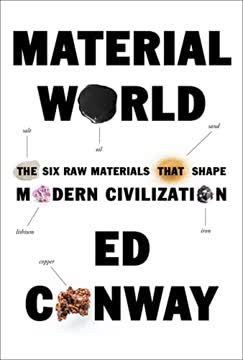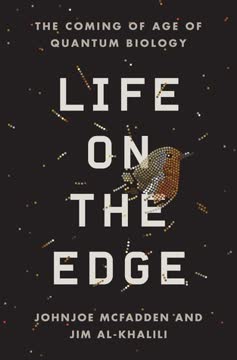Key Takeaways
1. Life is a Remarkable Chemical and Informational System
"Ultimately, life emerges from the relatively simple and well-understood rules of chemical attraction and repulsion, and the making and breaking of molecular bonds."
Complexity from Simplicity. Life's extraordinary complexity emerges from fundamental chemical interactions. Despite appearing magical, life operates through precise physical and chemical principles that can be understood scientifically.
Key Characteristics of Life's Chemistry:
- Built around carbon-based polymers
- Capable of information storage and transformation
- Able to self-organize and reproduce
- Maintains internal order while interacting with external environment
Molecular Miracle. The elegance of life lies in its ability to use different configurations of linear carbon polymers to generate both stable information storage and diverse chemical activities, creating a system that is simultaneously simple and profoundly complex.
2. Cells Are the Fundamental Units of Life
"Cells are not only the basic structural unit of all living organisms, they are also the basic functional unit of life."
Cellular Foundations. Cells represent biology's fundamental building blocks, possessing all core characteristics of living systems. Each cell is a complete, sophisticated living world capable of growth, reproduction, and purposeful action.
Cellular Characteristics:
- Self-contained entities with membranes
- Capable of metabolism and information processing
- Reproduce through cell division
- Communicate with external environment
- Maintain internal order
Microscopic Complexity. Modern microscopes reveal cells as intricate networks of organized chemical micro-environments, far more sophisticated than simple structural units. They are dynamic, information-processing machines that embody life's fundamental principles.
3. Genes Are the Information Carriers of Biological Inheritance
"Life cannot exist without genes: each new generation of cells and organisms must inherit the genetic instructions they need to grow, function and reproduce."
Genetic Blueprint. Genes serve as life's information storage and transmission mechanism, encoding instructions for building and maintaining organisms across generations. They represent a remarkably stable yet adaptable system of biological information.
Genetic Information Characteristics:
- Stored in DNA molecules
- Capable of precise replication
- Transmits inherited characteristics
- Allows variation through mutations
- Provides blueprint for organism development
Evolutionary Significance. Genetic information enables life's continuity while simultaneously providing mechanisms for adaptation and change, making evolution possible through natural selection.
4. Evolution Drives Biological Diversity Through Natural Selection
"Evolution by natural selection has generated populations of increasingly complex and diverse creatures... without ever deviating from the laws of science."
Creative Mechanism. Natural selection is a profoundly creative process that generates life's extraordinary diversity without supernatural intervention. It operates through fundamental principles of variation, inheritance, and differential survival.
Natural Selection Principles:
- Requires reproduction
- Needs hereditary information system
- Demands genetic variability
- Selects for most adaptive characteristics
- Produces increasing complexity over time
Interconnected Life. Evolution reveals that all life forms are fundamentally related, emerging from a shared ancestral lineage and continuously adapting to environmental challenges.
5. Chemistry Enables Life's Complex Organizational Capabilities
"Most aspects of life can be understood rather well in terms of physics and chemistry, albeit an extraordinary form of chemistry that is highly ordered and organized."
Chemical Foundations. Life's processes are fundamentally chemical, involving intricate networks of reactions controlled by enzymes and organized through sophisticated molecular mechanisms.
Chemical Life Characteristics:
- Metabolism as central organizing principle
- Enzyme-controlled reactions
- Precise molecular interactions
- Energy transformation
- Compartmentalization of processes
Molecular Machinery. Cells operate like complex chemical factories, with molecular machines performing specialized functions with remarkable precision and efficiency.
6. Information Processing is Central to Biological Functioning
"Information processing permeates all aspects of life."
Biological Computation. Living systems continuously collect, interpret, and respond to information from internal and external environments, demonstrating purposeful behavior through complex information management.
Information Processing Mechanisms:
- Genetic regulation
- Cellular signaling pathways
- Environmental adaptation
- Purposeful decision-making
- Memory and learning
Modular Information Systems. Biological systems use interconnected information modules that allow flexible, adaptive responses to changing conditions.
7. Biological Knowledge Can Transform Human Potential
"We have a unique opportunity to use our understanding of life to change the world."
Scientific Applications. Advanced biological understanding enables revolutionary interventions in healthcare, agriculture, environmental management, and technological innovation.
Transformative Potential Areas:
- Medical treatments
- Genetic engineering
- Climate change mitigation
- Food production
- Disease prevention
Responsible Innovation. Scientific progress must be balanced with ethical considerations and comprehensive understanding of potential consequences.
8. Understanding Life Requires Interdisciplinary Perspective
"Biology will increasingly need assistance from scientists in other disciplines, such as mathematicians, computer scientists and physicists."
Holistic Approach. Comprehending life's complexity demands collaborative, cross-disciplinary research integrating multiple scientific perspectives.
Interdisciplinary Collaboration:
- Molecular biology
- Computer science
- Physics
- Mathematics
- Philosophy
Complex Systems Thinking. Understanding life requires moving beyond reductionist approaches to embrace systemic, integrative methodologies.
9. Ethical Considerations Are Crucial in Biological Applications
"Debates about the public good need to be driven by knowledge, evidence and rational thinking, and not by ideology, unsubstantiated beliefs, greed or political extremes."
Responsible Science. Biological innovations must be evaluated through rigorous ethical frameworks considering potential societal and environmental impacts.
Ethical Considerations:
- Genetic privacy
- Equitable access to treatments
- Environmental consequences
- Potential misuse of technologies
- Long-term systemic effects
Transparent Dialogue. Open, evidence-based discussions involving scientists, policymakers, and public are essential for responsible biological innovation.
10. Life is Fundamentally Interconnected and Purposeful
"All individuals are related to every other life form on the planet."
Ecological Unity. Life forms are deeply interconnected, sharing fundamental chemical and informational characteristics across diverse species.
Interconnection Principles:
- Shared genetic heritage
- Ecological interdependence
- Common evolutionary mechanisms
- Mutual environmental influence
- Systemic complexity
Planetary Perspective. Understanding life's interconnectedness promotes holistic approaches to environmental stewardship and species conservation.
Last updated:
FAQ
What's "What Is Life?: Five Great Ideas in Biology" about?
- Exploration of Life's Definition: The book delves into the fundamental question of what it means to be alive, exploring the complexity and diversity of life on Earth.
- Five Key Biological Ideas: Paul Nurse presents five central concepts in biology: The Cell, The Gene, Evolution by Natural Selection, Life as Chemistry, and Life as Information.
- Interconnectedness of Life: It emphasizes the interconnectedness of all living organisms and how these ideas help us understand life's processes.
- Scientific and Personal Journey: The book combines scientific insights with personal anecdotes from the author's life and career in biology.
Why should I read "What Is Life?: Five Great Ideas in Biology"?
- Comprehensive Overview: It provides a comprehensive overview of the fundamental principles of biology, making it accessible to both novices and those with a background in science.
- Insightful Perspectives: The book offers insightful perspectives on how life functions and the scientific discoveries that have shaped our understanding.
- Relevance to Modern Issues: It discusses the implications of biological knowledge on current global challenges, such as climate change and healthcare.
- Engaging Narrative: Paul Nurse's engaging narrative style makes complex scientific concepts understandable and relatable.
What are the key takeaways of "What Is Life?: Five Great Ideas in Biology"?
- Five Biological Concepts: Understanding the cell, gene, evolution, chemistry, and information are crucial to comprehending life.
- Interconnectedness and Evolution: All life forms are interconnected through evolution, sharing a common ancestry and genetic makeup.
- Life as Chemistry and Information: Life is a complex interplay of chemical reactions and information processing, which allows organisms to function and adapt.
- Scientific Responsibility: The book highlights the responsibility of scientists and society to use biological knowledge ethically and sustainably.
How does Paul Nurse define life in "What Is Life?: Five Great Ideas in Biology"?
- Three Principles of Life: Life is defined by the ability to evolve through natural selection, being a bounded physical entity, and functioning as a chemical, physical, and informational machine.
- Evolutionary Capability: The ability to reproduce, have a hereditary system, and exhibit variability is essential for evolution.
- Physical and Informational Nature: Life forms are physical entities that manage information to maintain and reproduce themselves.
- Chemical Complexity: Life's chemistry is based on large carbon-based polymers, which store information and perform diverse functions.
What is the significance of "The Cell" in "What Is Life?: Five Great Ideas in Biology"?
- Basic Unit of Life: The cell is described as the fundamental structural and functional unit of all living organisms.
- Cell Theory: The book explains cell theory, which states that all living things are composed of cells, and cells are the simplest entities that can be considered alive.
- Diversity and Commonality: While cells vary greatly in size and function, they share common features that define life.
- Role in Growth and Repair: Cells are responsible for growth, repair, and reproduction, making them central to understanding life processes.
How does "The Gene" contribute to our understanding of life in "What Is Life?: Five Great Ideas in Biology"?
- Inheritance and Variation: Genes are the key to understanding inheritance and the variation observed in living organisms.
- Mendel's Discoveries: The book discusses Gregor Mendel's pioneering work on inheritance, which laid the foundation for modern genetics.
- DNA as Genetic Material: It explains how DNA encodes genetic information and how this information is passed on through generations.
- Genetic Code and Proteins: The genetic code is translated into proteins, which perform essential functions in cells and organisms.
What role does "Evolution by Natural Selection" play in "What Is Life?: Five Great Ideas in Biology"?
- Mechanism of Diversity: Evolution by natural selection is presented as the process that generates the diversity of life forms.
- Darwin's Contribution: The book highlights Charles Darwin's role in developing the theory of natural selection and its impact on biology.
- Adaptation and Survival: Natural selection explains how organisms adapt to their environments and how new species arise.
- Interconnectedness of Life: It emphasizes that all life is connected through evolutionary history, sharing common ancestors.
How is "Life as Chemistry" explained in "What Is Life?: Five Great Ideas in Biology"?
- Chemical Reactions in Life: Life is described as a series of complex chemical reactions that sustain living organisms.
- Role of Enzymes: Enzymes are crucial for catalyzing the chemical reactions that make up metabolism.
- Carbon-Based Polymers: The book explains how carbon-based polymers, like DNA and proteins, are central to life's chemistry.
- Order from Chaos: Life's chemistry creates order from chaos, allowing organisms to maintain structure and function.
What does "Life as Information" mean in "What Is Life?: Five Great Ideas in Biology"?
- Information Processing: Life is viewed as an information-processing system, where organisms gather, store, and use information to survive.
- Genetic Information: DNA stores genetic information, which is used to build and regulate living organisms.
- Gene Regulation: The book discusses how gene regulation allows cells to respond to changes and maintain homeostasis.
- Purposeful Behavior: Information management enables organisms to act with purpose, adapting to their environments.
What are the best quotes from "What Is Life?: Five Great Ideas in Biology" and what do they mean?
- "Life is a chemical, physical, and informational machine." This quote encapsulates the book's view of life as a complex system that integrates chemistry, physics, and information.
- "We are bound by a deep connectedness to all other life." It highlights the interconnectedness of all living organisms through shared evolutionary history and ecological relationships.
- "The universe is unimaginably vast... life as it is on Earth today started just once." This emphasizes the uniqueness and singular origin of life on Earth, despite the vastness of the universe.
- "It is only through death that there can be life." This reflects the role of natural selection in driving evolution and the continuous cycle of life and death.
How does Paul Nurse's personal journey influence "What Is Life?: Five Great Ideas in Biology"?
- Early Fascination with Biology: Nurse's childhood curiosity about a butterfly sparked his lifelong interest in biology.
- Scientific Career: His experiences as a geneticist and cell biologist provide a personal perspective on the scientific discoveries discussed in the book.
- Research Contributions: Nurse shares insights from his research on cell cycle control, which has implications for understanding cancer and other diseases.
- Philosophical Reflections: His personal journey informs his reflections on the ethical and societal implications of biological knowledge.
What are the implications of "What Is Life?: Five Great Ideas in Biology" for the future?
- Healthcare Advancements: The book discusses how biological knowledge can lead to new treatments for diseases and improve healthcare.
- Environmental Challenges: It highlights the role of biology in addressing global challenges like climate change and biodiversity loss.
- Ethical Considerations: The book raises ethical questions about genetic engineering, synthetic biology, and the use of biological knowledge.
- Interdisciplinary Collaboration: It emphasizes the need for collaboration between scientists, policymakers, and society to address complex biological issues.
Review Summary
"What is Life?" explores fundamental biological concepts through five key ideas: cells, genes, evolution, chemistry, and information. Written by Nobel laureate Paul Nurse, the book offers an accessible overview of life's complexities, from cellular functions to genetic inheritance. While some readers found it enlightening and well-written, others felt it lacked depth or originality. The book's strengths lie in its clear explanations and personal anecdotes, though some criticized its uneven information distribution and simplistic approach to complex topics. Overall, it serves as a solid introduction to biology for general readers.
Similar Books








Download PDF
Download EPUB
.epub digital book format is ideal for reading ebooks on phones, tablets, and e-readers.




